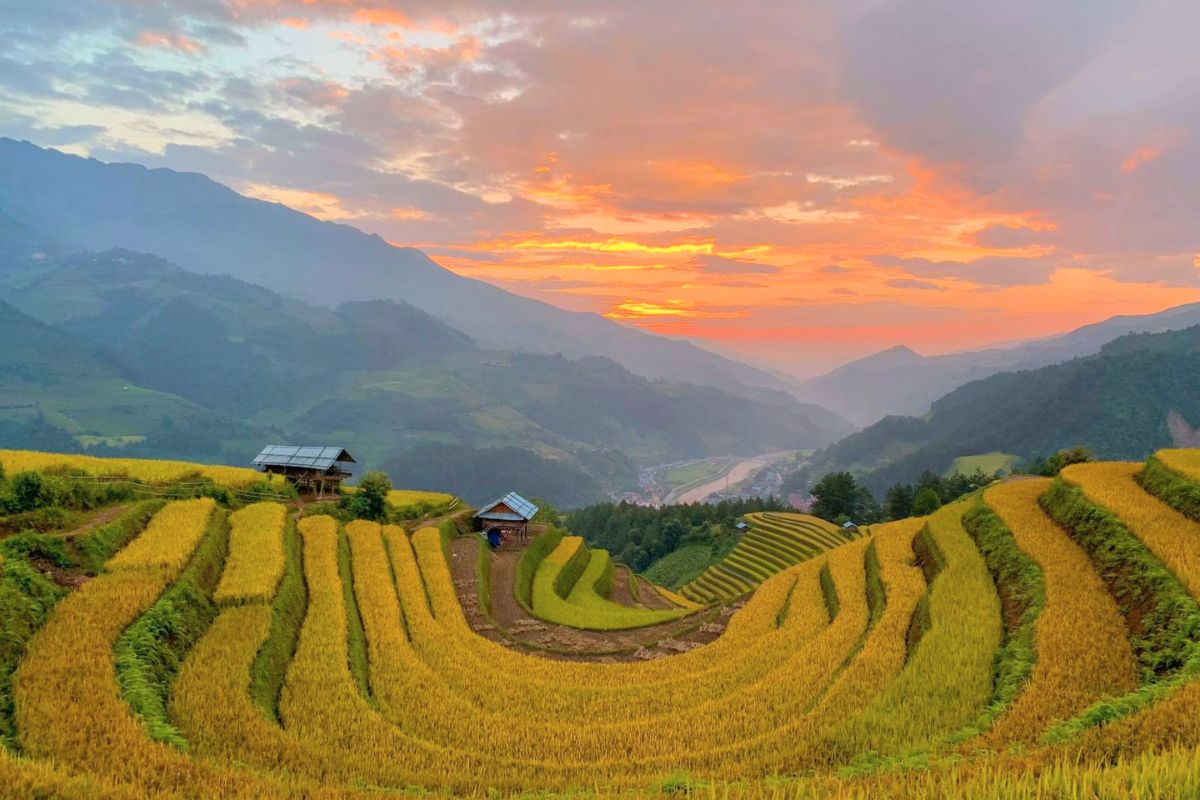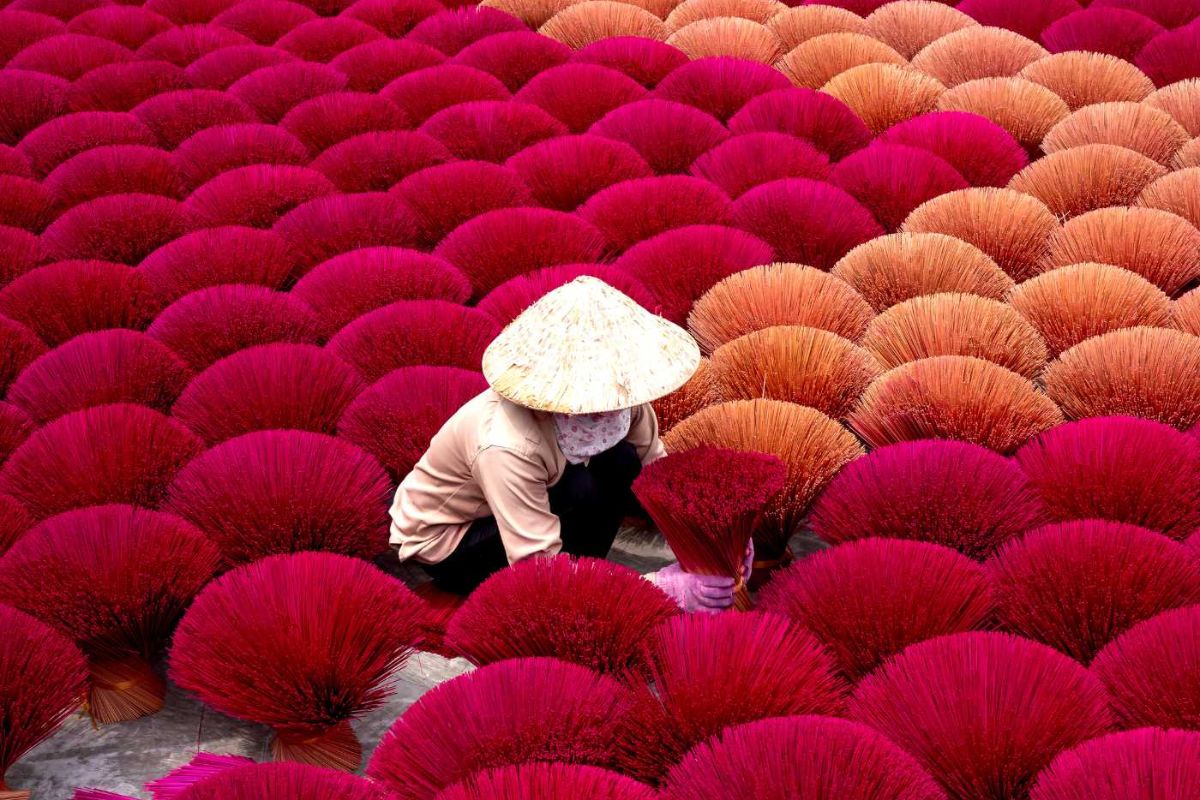TABLE OF CONTENT
Stepping into Vietnam is like entering a fruit lover’s paradise. From the bustling streets of Hanoi to the serene Mekong Delta, the country bursts with a cornucopia of tropical delights. Everywhere you turn, vibrant displays of ‘hoa quả’ (fruits) catch your eye – perfectly stacked pyramids of color adorning street corners, hanging from bicycle baskets, and filling local markets. In this guide, we’ll introduce you to the best fruit to eat in Vietnam, showing you how to enjoy the best of each. So grab your sense of adventure and prepare your taste buds – it’s time to explore the wonderful world of Vietnamese fruits!
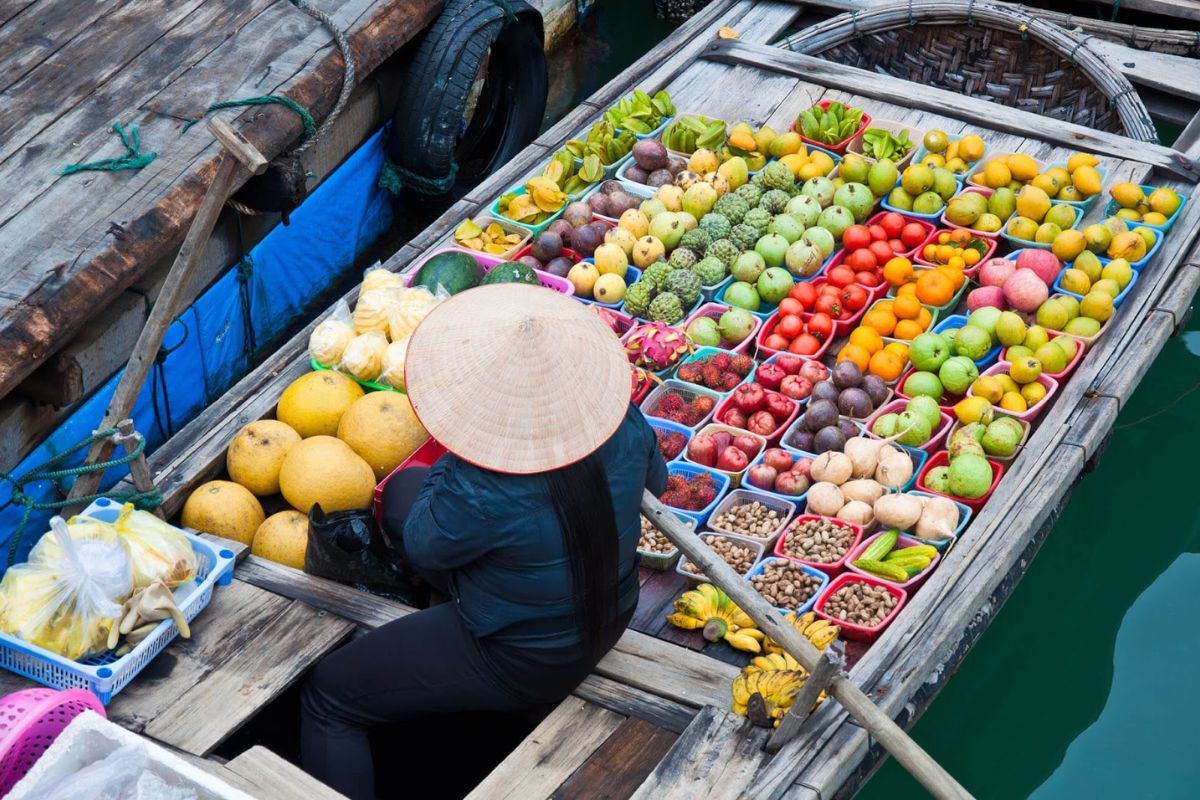
Can you eat fruit in Vietnam?
Before we dive into the delectable world of fruits to eat in Vietnam, let’s address a common concern among travelers: Can you eat fruit in Vietnam? The short answer is yes but with some precautions. Vietnam’s tropical climate provides ideal conditions for growing a wide variety of fruits, and many are perfectly safe to consume. However, to ensure your fruit-eating experience is both enjoyable and worry-free, keep these tips in mind:
- Choose fruits with peels or thick skins that you can remove yourself.
- If buying pre-cut fruit, ensure it’s from a reputable vendor and has been freshly prepared.
- Wash fruits thoroughly with clean water before consuming, especially if you plan to eat the skin.
- Fruits in season are typically fresher, more abundant, and less likely to have been stored for long periods.

There are various safe places to buy fruits to eat in Vietnam. Major cities have modern supermarkets where fruits are typically well-handled and cleaned. Local markets, while more adventurous, offer a wide variety of fresh fruits – look for busy stalls with high turnover. Specialized fruit shops often have high-quality produce and may cater to tourists with safety concerns. Many hotels offer a selection of safe, pre-prepared fruits in their buffets. Some areas even offer tours to organic fruit farms where you can pick and eat fruits straight from the source.
10+ Best fruit to eat in Vietnam
Now, let’s explore the cream of the crop when it comes to Vietnamese fruits. These are the best fruit to eat in Vietnam that will make your taste buds dance and your Instagram feed pop with vibrant colors.
Mangosteen – Mang cut
Often called the “queen of fruits,” mangosteen is the true best fruit to eat in Vietnam that shouldn’t be missed. This purple-skinned fruit with snow-white segments inside is prized for its delicate, sweet-tart flavor that’s often described as a blend of lychee, peach, and strawberry. You can find mangosteen widely available in markets and fruit stalls across Vietnam, especially in the southern regions, from May to August.
To enjoy a mangosteen, gently press the sides until the rind splits open. Peel back the purple skin to reveal the white segments inside. Eat these segments directly, savoring their juicy texture, but be mindful of the occasional seed. The fruit’s complex flavor and limited seasonal availability make it one of the must-try fruits to eat in Vietnam for any visitor.
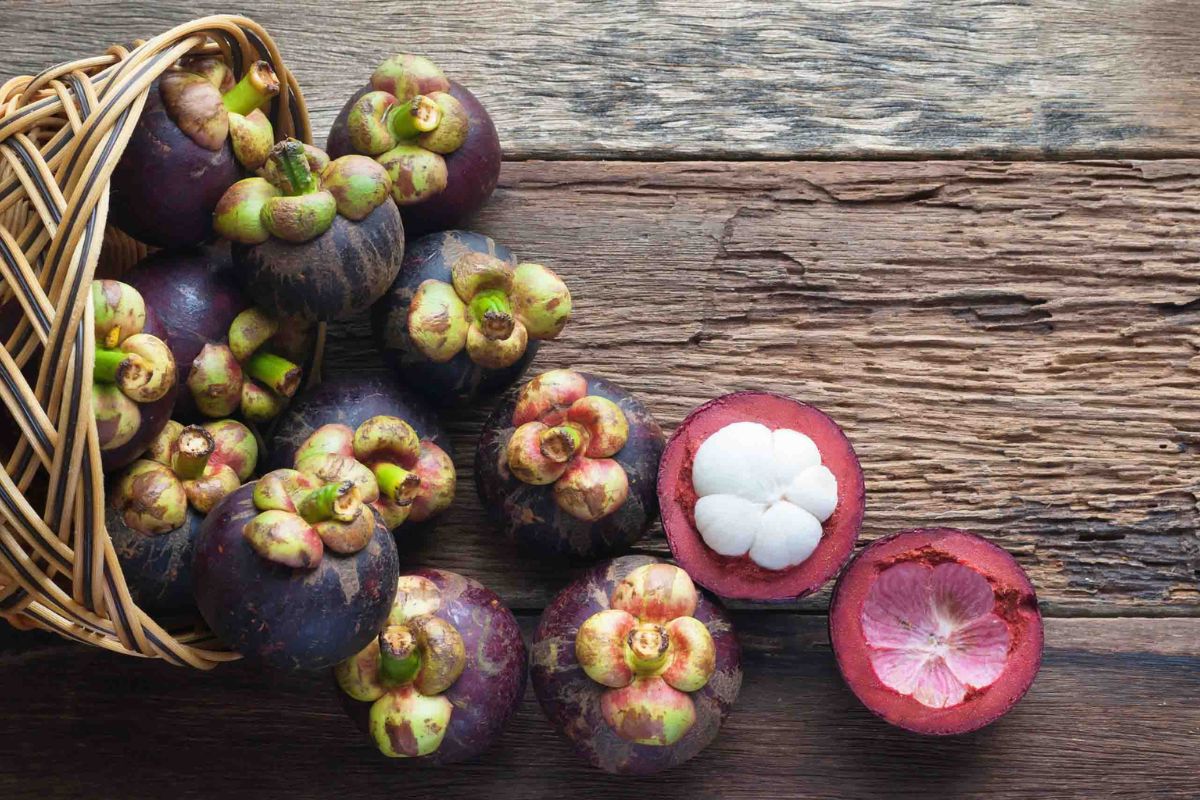
Lychee – Vai thieu
Lychees are small, round fruits with thin, bumpy red skins that hide translucent white flesh within. Prized for their fragrant, floral sweetness, these juicy delights are a summer favorite in Vietnam. Rich in vitamin C and antioxidants, lychees offer a refreshing respite from the tropical heat. They’re abundant from May to July, with the Luc Ngan district in Bac Giang province famous for producing some of the country’s finest.
To eat a lychee, use your fingernails to pierce the thin skin near the stem, then peel it off to reveal the fruit. Pop the whole lychee in your mouth, eating around the single brown seed in the center, which should be discarded. Whether enjoyed fresh, in desserts or as a sweet addition to cocktails, lychees embody the essence of Vietnamese summer.
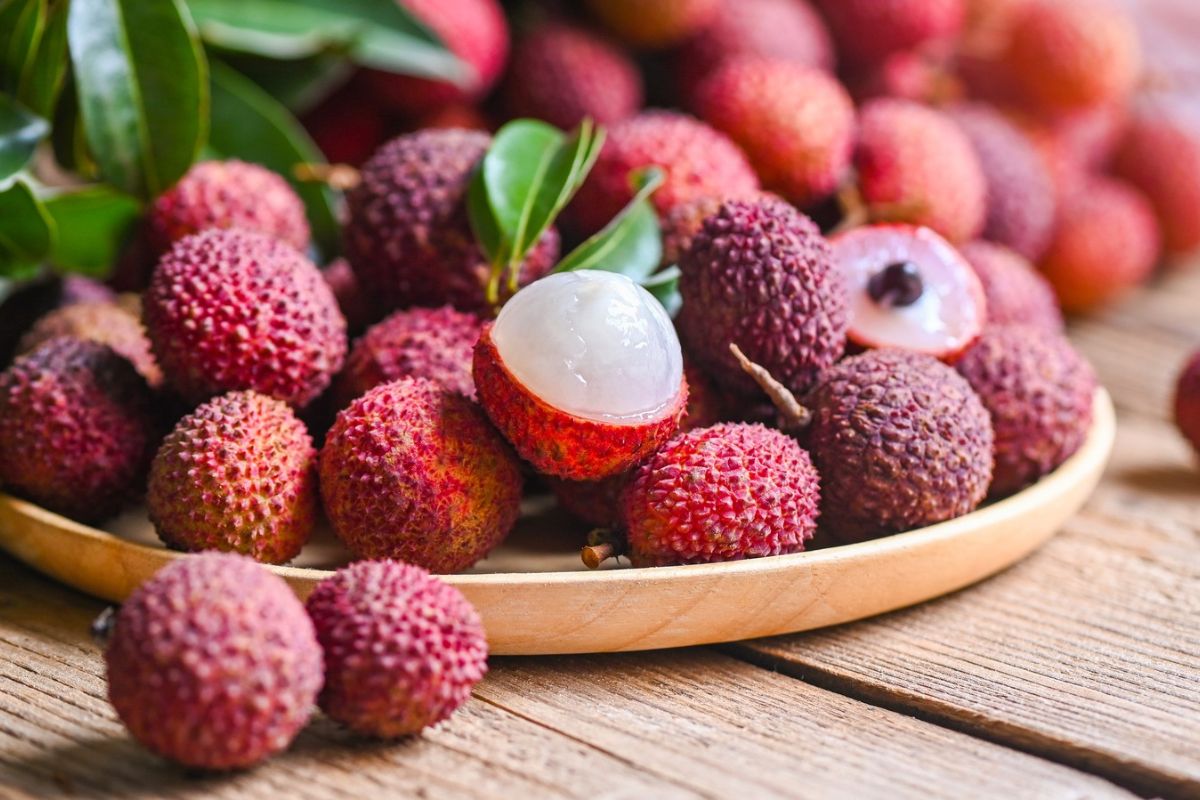
Mango – Xoai
Vietnamese mangoes are celebrated for their exceptional sweetness and aromatic flavor, often surpassing varieties found elsewhere. From large, golden-yellow types to smaller, green-skinned varieties, there’s a mango for every preference. While available year-round, mangoes are at their prime from March to May.
To eat a ripe mango, you can simply peel the skin off with your hands or a knife and enjoy the flesh directly. Alternatively, cut the mango lengthwise on either side of the flat seed, score the flesh in a crisscross pattern, then push the skin inside out to expose cubes of fruit that you can easily cut off or eat directly. This versatile fruit is a true taste of Vietnamese sunshine.

Rambutan – Chom chom
Don’t let the hairy, red exterior of rambutan intimidate you – beneath its spiky skin lies a sweet, translucent fruit similar to lychee. The name “chôm chôm” in Vietnamese means “messy hair,” aptly describing its distinctive appearance. Rich in vitamin C and offering a unique texture, rambutan is the best fruit to eat in Vietnam you can find from May to September, especially in southern Vietnam.
To eat a rambutan, use your fingernail or a small knife to pierce the skin, then gently pull it apart to reveal the white fruit inside to enjoy.
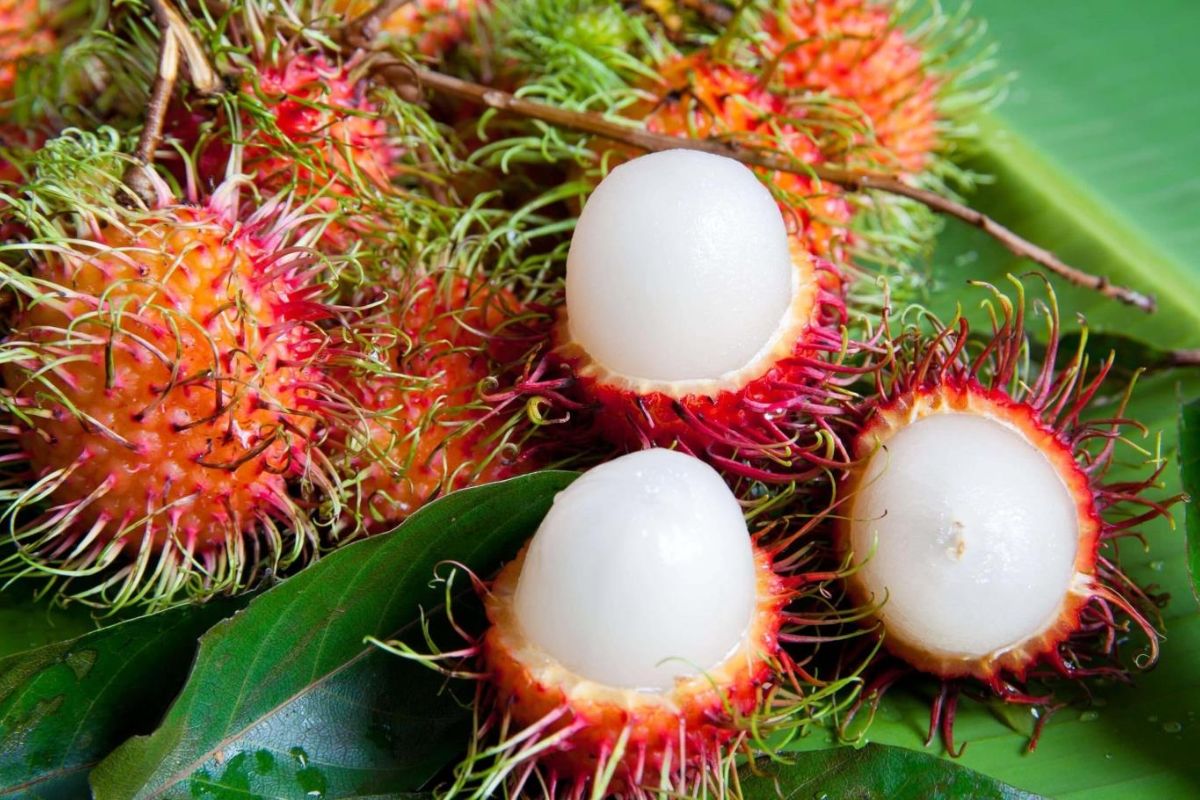
Longan – Nhan
Often confused with lychee, longan is a smaller fruit with a smoother, tan-colored skin. Its Vietnamese name, meaning “dragon eye,” refers to its appearance when peeled – a black seed surrounded by translucent flesh, resembling an eyeball. You’ll find longan from July to September, often sold in bunches still on the branch for a rustic, authentic experience.
To eat longan, gently break the thin shell with your teeth or fingernails, peel off the skin, and pop the whole fruit into your mouth. Savor the translucent white flesh, but remember to spit out the smooth, black seed in the center.
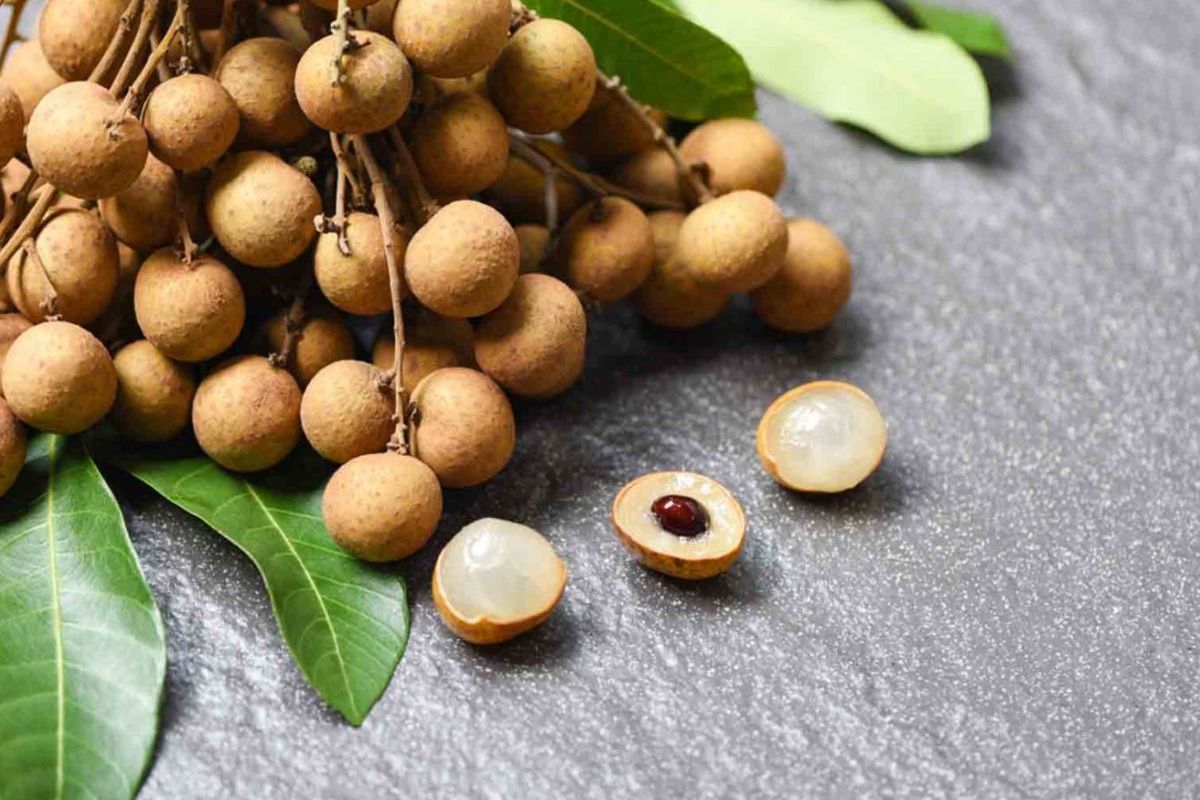
Pomelo – Buoi
Among common fruits to eat in Vietnam, pomelo is the easiest fruit to find because of its popularity. Known as the largest citrus fruit, pomelo is a close relative of grapefruit but generally sweeter and less bitter. This softball-sized fruit has a thick, pale green rind concealing juicy segments that range from pale yellow to pink. Rich in vitamin C and potassium, pomelo is both refreshing and nutritious.
To eat, peel away the thick rind and bitter white pith. Separate the segments and remove the membrane before enjoying the juicy pulp. Pomelo is often given as a gift during the Vietnamese New Year and is a popular ingredient in salads and desserts.
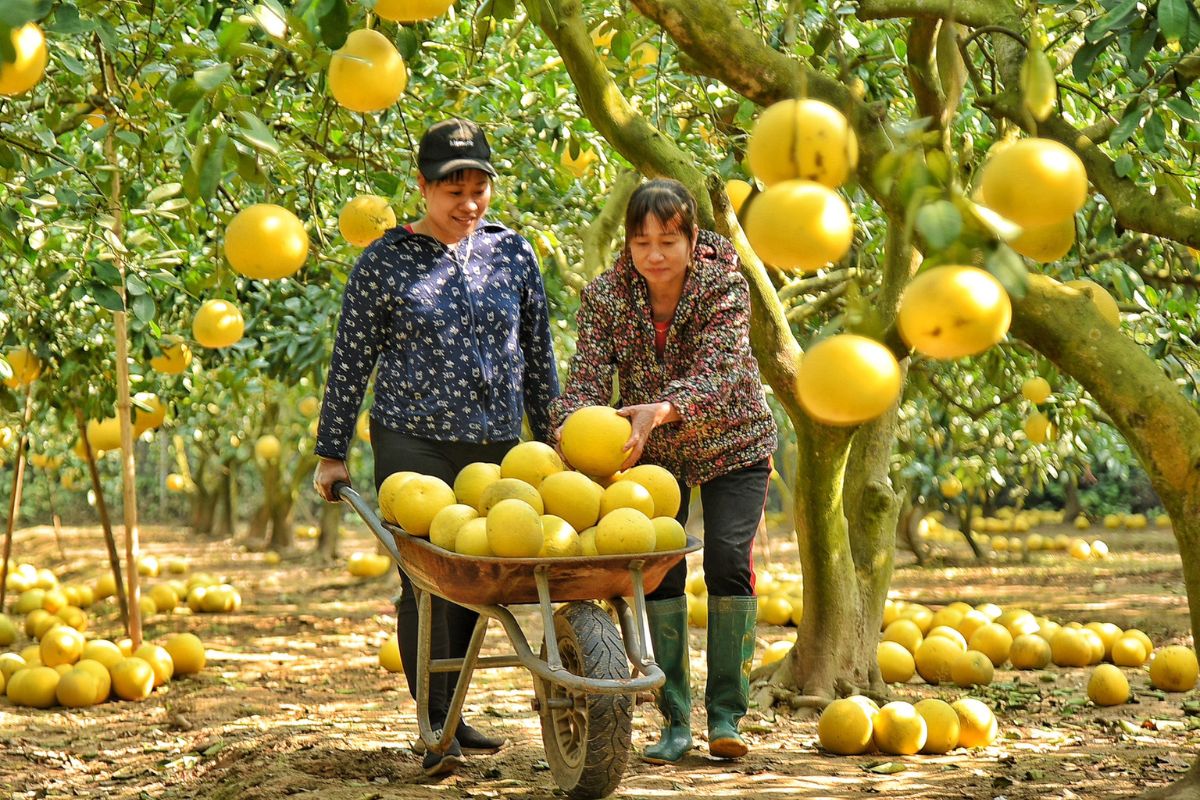
Durian – Sau rieng
Known as the “king of fruits,” durian is perhaps the most controversial fruit in Vietnam. Many people confidently assert that this is the best fruit to eat in Vietnam, but many people cannot enjoy this fruit with its strong odor. Durian is nutrient-dense, containing high levels of vitamin C, potassium, and healthy fats. You’ll find it from May to August, but many prefer to try it in durian-flavored desserts or ice cream for a milder introduction.
To eat fresh durian, cut open the spiky shell and scoop out the creamy flesh surrounding the seeds. The taste is often described as a blend of sweet custard and almonds, with subtle savory notes.
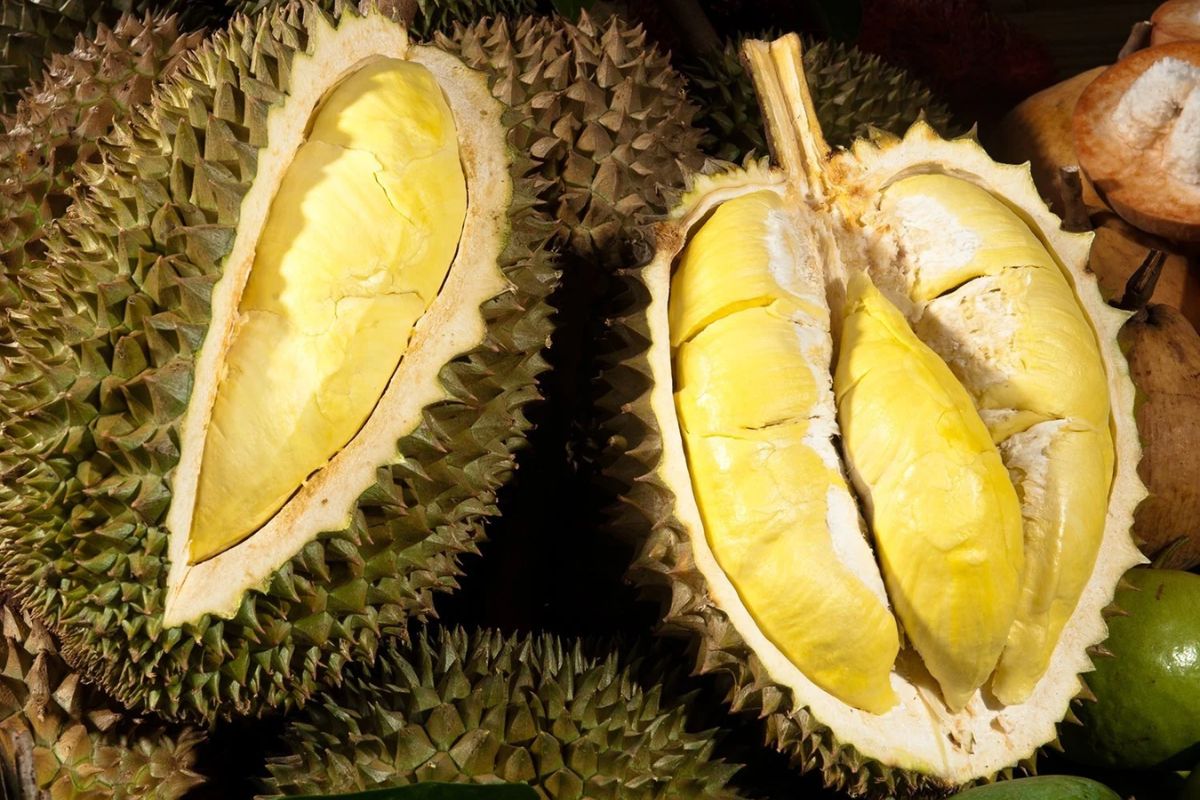
Dragon Fruit – Thanh long
Dragon fruit is undoubtedly one of the most visually striking fruits to eat in Vietnam. With its vibrant pink skin and speckled white or red flesh, dragon fruit is as beautiful as it is delicious. Its mild, slightly sweet flavor is reminiscent of a cross between a kiwi and a pear. Rich in antioxidants and fiber, dragon fruit is a healthy, low-calorie snack. It’s available year-round but most abundant from May to September.
To eat, simply cut the fruit in half and scoop out the flesh with a spoon, or peel and slice it. Dragon fruit is often used in smoothies and fruit salads, adding a pop of color and subtle sweetness to dishes.
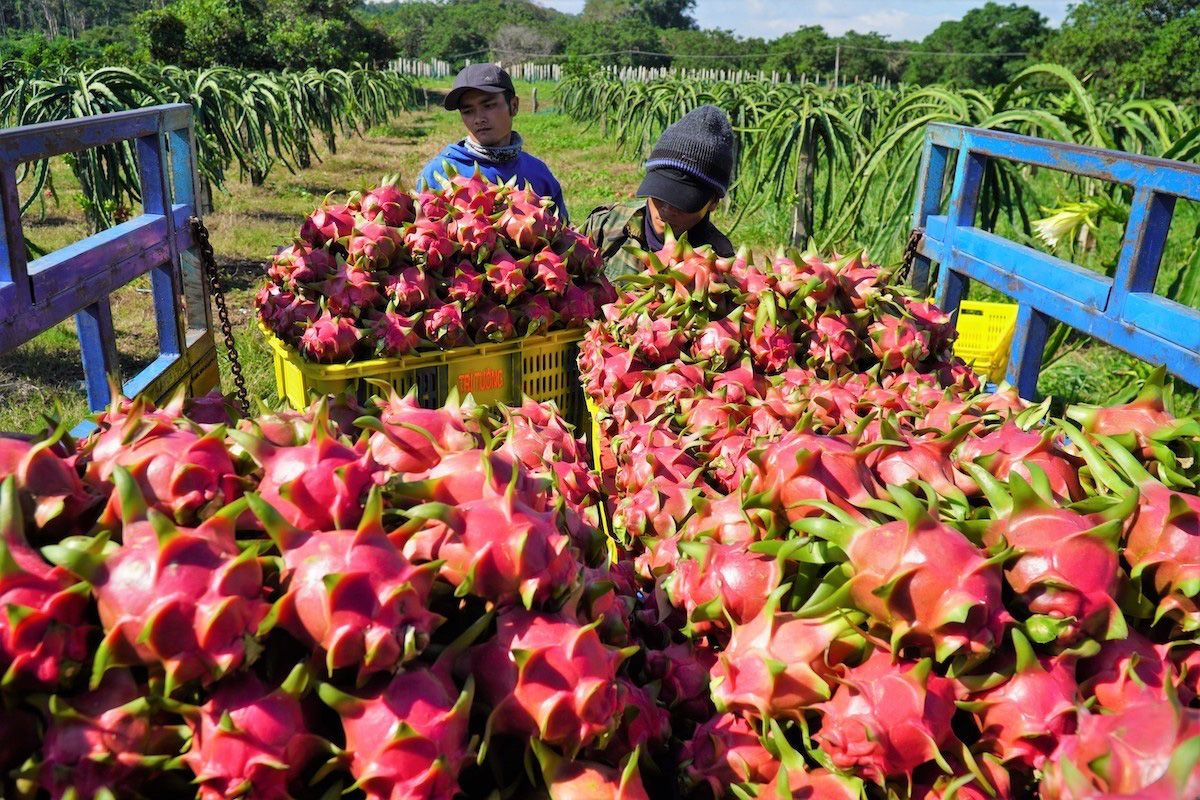
Starfruit – Khe
Starfruit, or carambola, is one of the most visually appealing fruits to eat in Vietnam. Named for its distinctive shape when cut crosswise, this fruit offers a crisp texture and a sweet-tart flavor that varies depending on ripeness. You can find this healthy snack year-round, but it’s most abundant from June to September.
To eat, simply wash the fruit and slice it crosswise to reveal its star shape. The entire fruit, including the waxy skin, is edible. Star fruit is often used in juices, as a garnish for drinks, or as a decorative element in dishes, adding both flavor and visual appeal to Vietnamese cuisine.
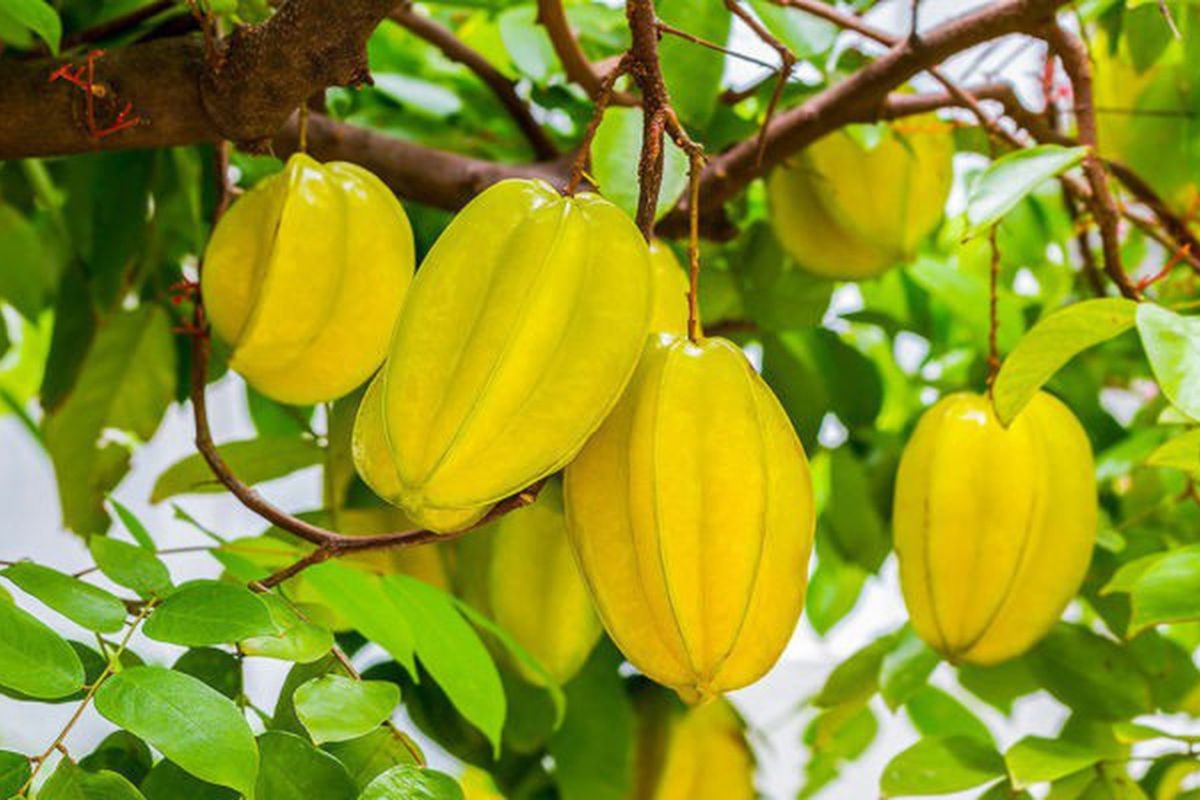
Jackfruit – Mit
Jackfruit is the most unique best fruit to eat in Vietnam and holds the distinction of being the largest tree-borne fruit in the world. Its yellow flesh pods have a sweet, tropical flavor often compared to a combination of banana, pineapple, and mango. Jackfruit is not only delicious but also versatile, used in both sweet and savory dishes.
To eat fresh jackfruit, cut it open and remove the fleshy pods around the seeds. The seeds are also edible when cooked. In Vietnam, you’ll often find jackfruit sold pre-cut in plastic bags for convenience.
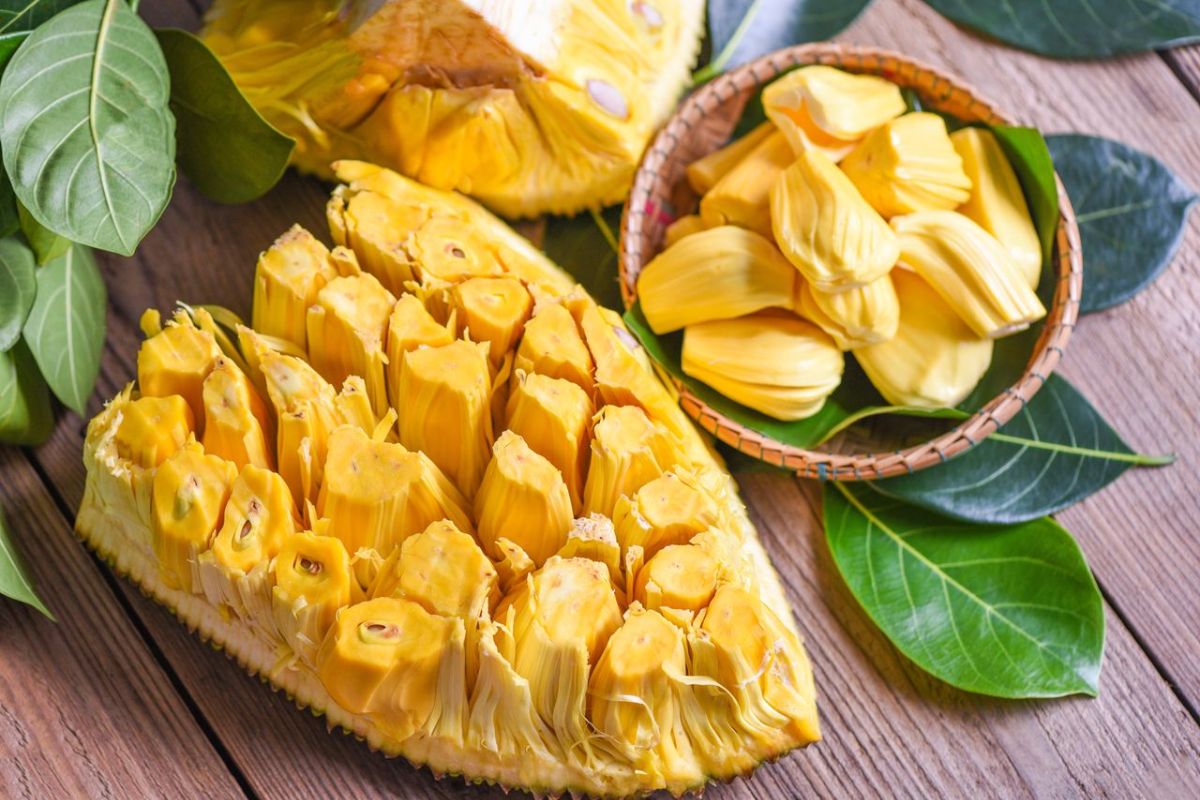
Passion Fruit – Chanh leo
Passion fruit is a small but mighty addition to the list of best fruit to eat in Vietnam. These round fruits with hard purple shells contain a seedy, gelatinous pulp that’s tart and refreshing. Vietnamese passionfruit tends to be sweeter than varieties found elsewhere. Packed with antioxidants and vitamin C, passionfruit is both delicious and nutritious.
To eat passion fruit, cut the fruit in half and scoop out the pulp with a spoon. The seeds are edible and add a pleasant crunch. Passion fruit is often used in desserts, smoothies, and cocktails, its unique flavor making it a popular addition to various Vietnamese treats.
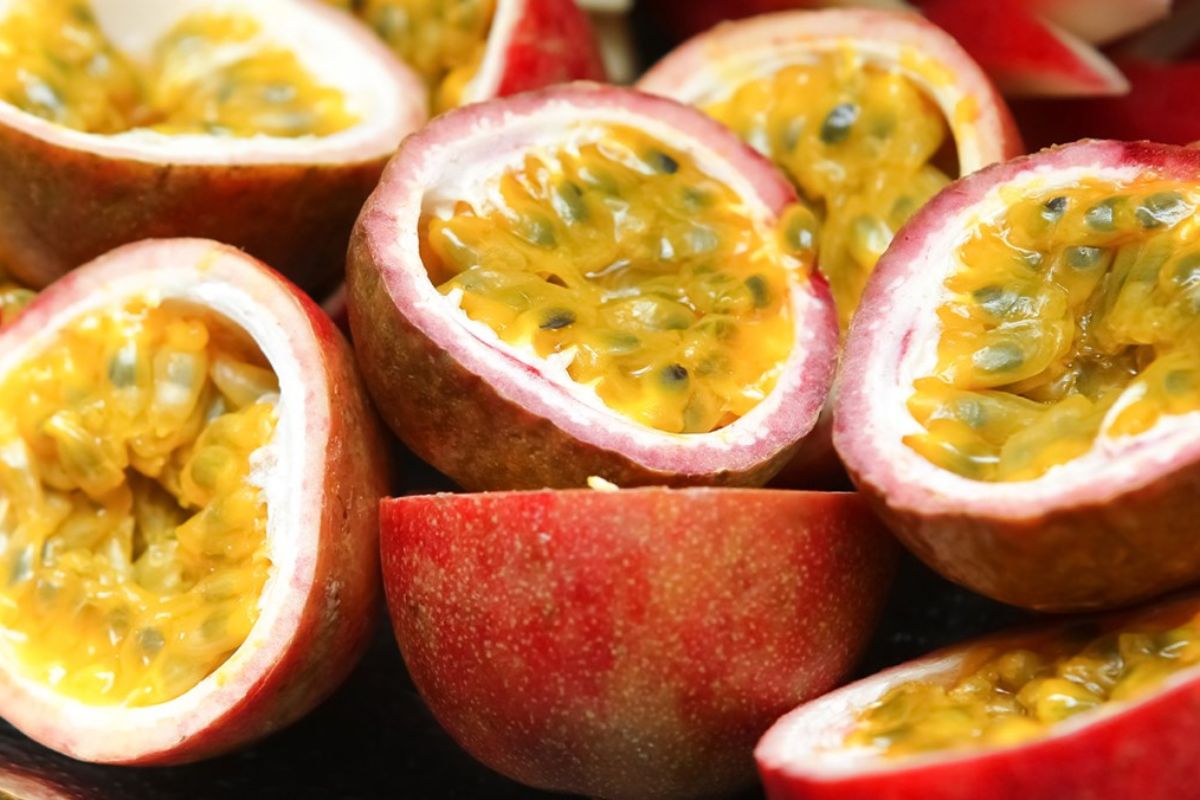
You may like this itinerary:
Conclusion
Vietnam’s tropical climate and fertile soil provide the perfect conditions for growing an incredible variety of delicious fruits. Exploring the best fruit to eat in Vietnam is not just a culinary adventure but also a way to immerse yourself in Vietnamese culture and traditions.
As you plan your fruit-tasting journey through Vietnam, consider booking with Asia Encounter, a leading travel agency specializing in authentic Southeast Asian experiences. Our expert guides can help you navigate local markets, introduce you to lesser-known fruit varieties, and even arrange visits to orchards where you can see these amazing fruits growing in their natural environment.


